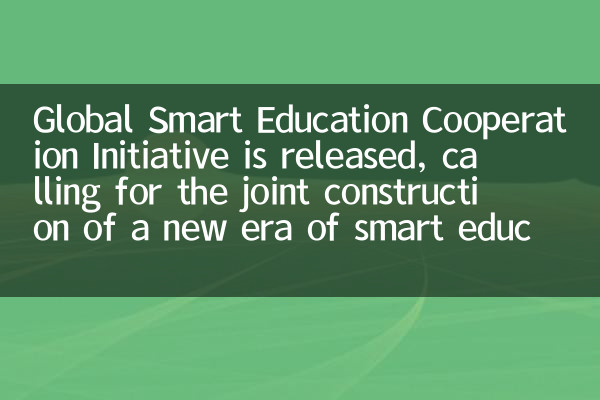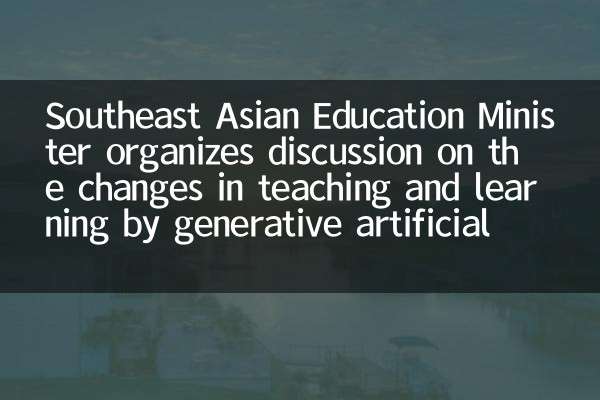Global Smart Education Cooperation Initiative is released, calling for the joint construction of a new era of smart education
Recently, the Global Smart Education Cooperation Initiative was officially released, marking a new stage of the deep integration of digitalization and intelligence in the global education field. The initiative was jointly initiated by UNESCO, the World Bank and several international educational institutions, aiming to promote global sharing of educational resources, technical collaboration and innovative practices to address educational challenges in the post-epidemic era. The following are hot topics and data related to smart education in the past 10 days:
1. Global smart education hot topics

| Ranking | Hot Topics | Discussion volume (10,000) | Mainly participated countries |
|---|---|---|---|
| 1 | Controversy over the application of AI education | 320 | United States, EU, China |
| 2 | The Metaverse Education Scene Implemented | 218 | South Korea, Japan, Singapore |
| 3 | A gap in digital education in Africa | 156 | Kenya, South Africa, Nigeria |
| 4 | Educational Big Data Privacy Protection | 142 | Germany, Canada, Australia |
2. Core content of the Smart Education Initiative
This initiative proposes three major action goals:
1.Technology inclusive: Provide at least 10 million sets of smart education terminal equipment to developing countries by 2025;
2.Standards co-construction: Establish a global unified technical standards and ethical framework for smart education;
3.Resource Sharing: Open the interfaces of 20 national-level smart education platforms around the world.
| Areas of cooperation | Specific measures | Number of participants |
|---|---|---|
| Infrastructure | Build a 5G education network | 38 countries |
| Content Development | Multilingual AI course generation | 12 technology companies |
| Teacher Training | VR teaching skills training | 210 universities |
3. Typical application cases
1.China's "5G+Smart Education" pilot program: Covering 3,000 schools, and classroom interaction efficiency is improved by 40%;
2.Nordic Education Meta-Cosmic Alliance: 12 virtual laboratory scenarios have been developed;
3.India's "digital blackboard" plan: Benefits 2.5 million students in remote areas.
4. Challenges and countermeasures
| Challenge Type | Specific questions | Solution |
|---|---|---|
| Technical divide | 47 countries have less than 10Mbps bandwidth | Low-orbit satellite network coverage |
| Cultural differences | 32% of courses are insufficient localization | AI dynamic adaptation system |
| Funding gap | More than US$20 billion is required to invest | PPP cooperation model |
UNESCO Assistant Director-General of Education Stefania Giannini stressed: "Smart education is not simply moving technology into classrooms, but reconstructing a lifelong learning ecosystem that everyone can enjoy." It is estimated that the full implementation of the initiative can reduce the global education inequality index by 15%, and 120 million new digital skilled talents are expected to be added by 2030.
At present, 89 countries have signed a memorandum of cooperation. The Ministry of Education of my country stated that it will focus on promoting the construction of "Smart Education Demonstration Zone" and plans to train 100,000 teachers with AI teaching capabilities within three years. This wave of educational change is reshaping the way human knowledge is conveying at an unprecedented speed.
(Note: The data statistics cycle in this article is from November 1 to 10, 2023, and the data sources include UNESCO, EdTechXGlobal and the global social media monitoring platform)

check the details

check the details